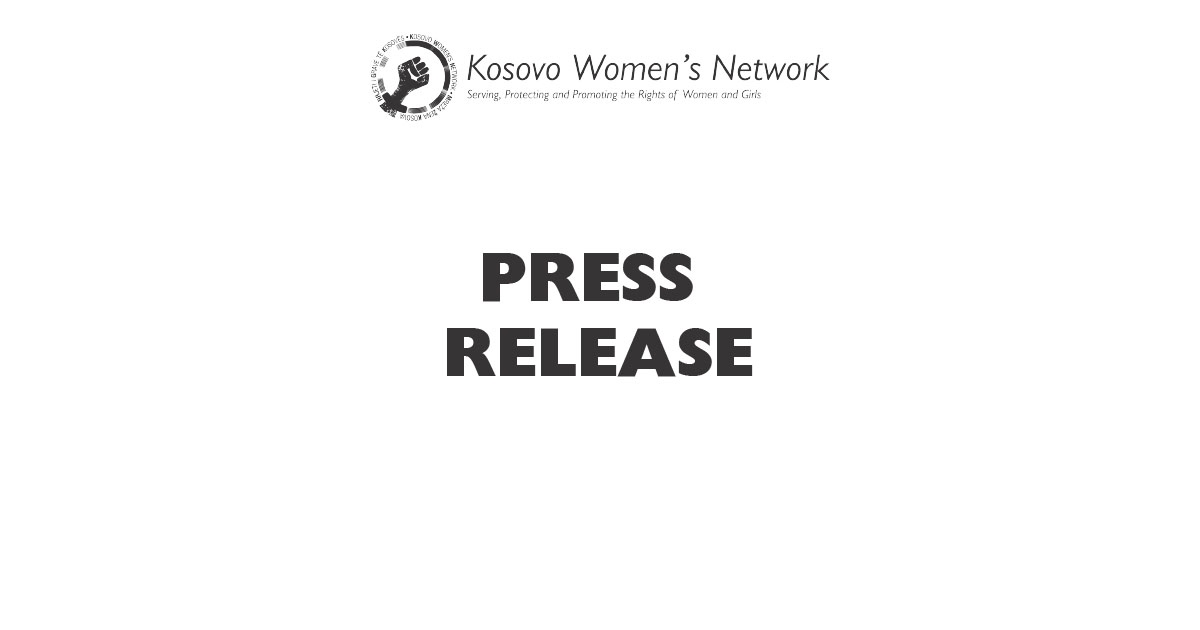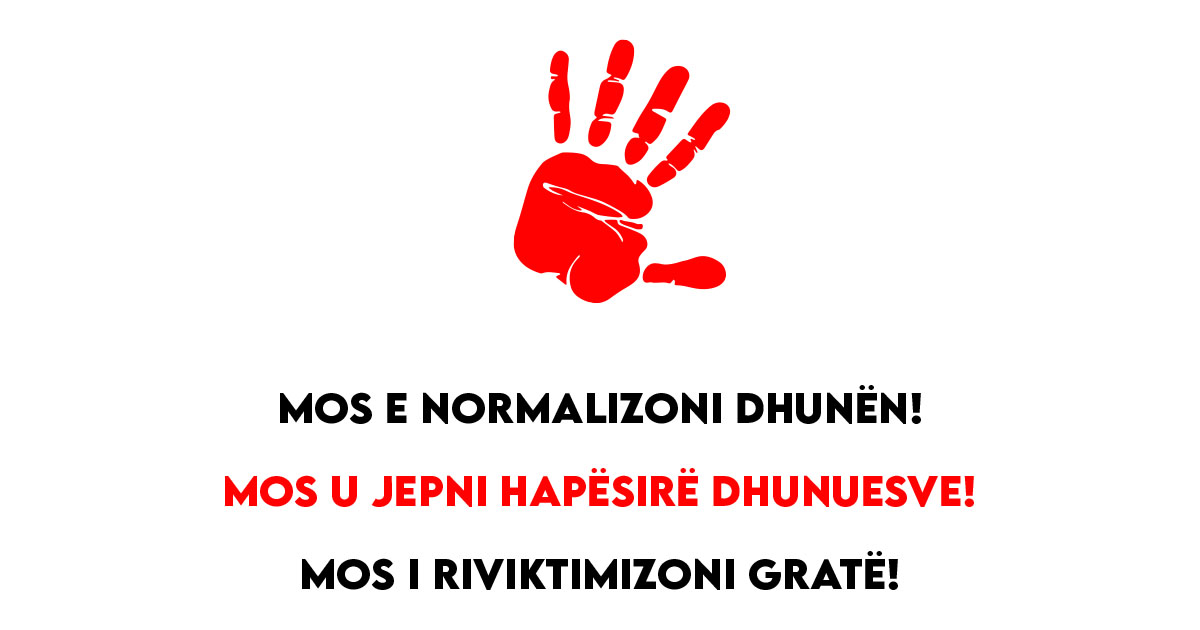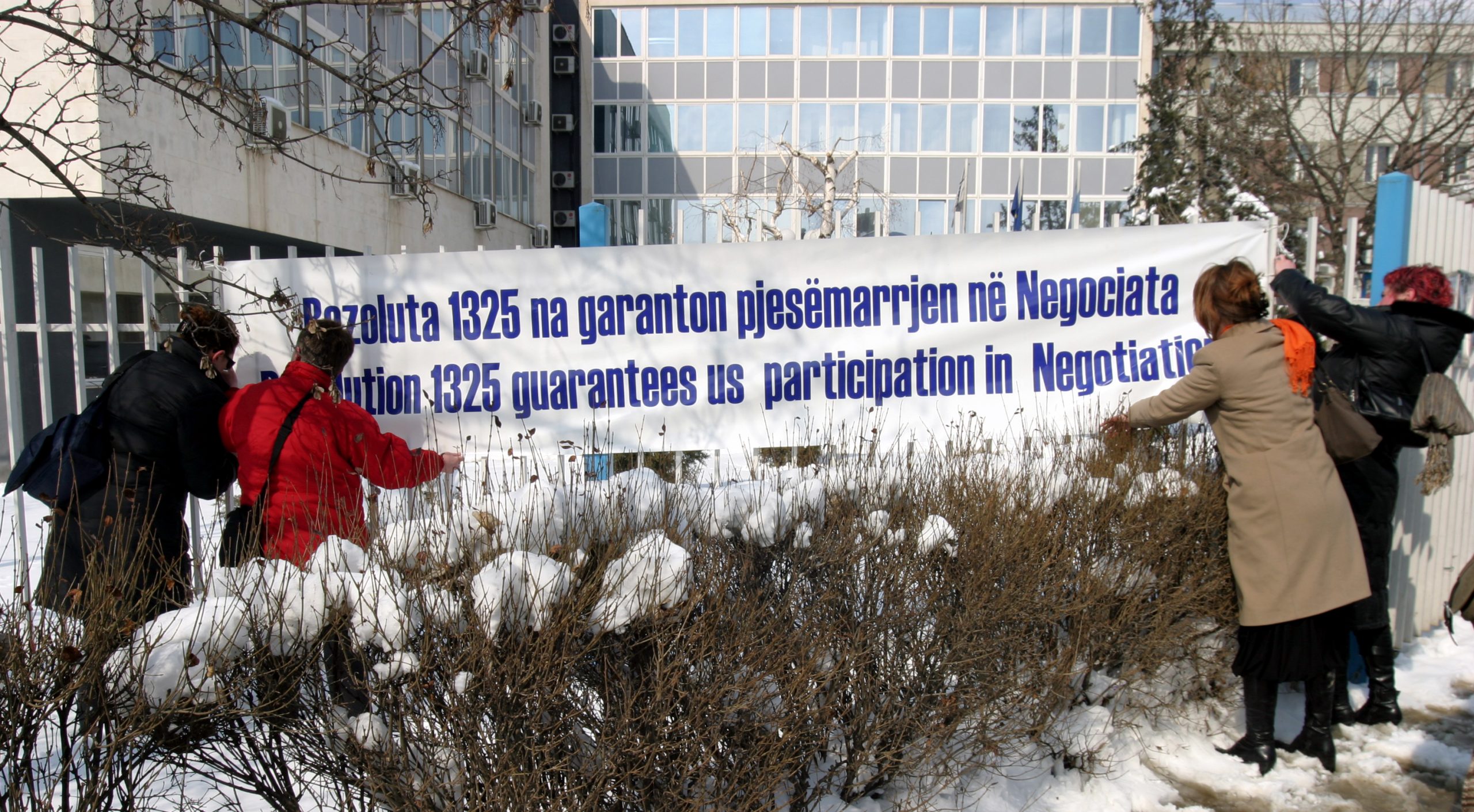KWN expresses concern over recent, unfounded accusations by CDHRF, calls for continued public support for survivors of sexual violence perpetrated during the war in Kosovo
Pristina – The Kosovo Women’s Network (KWN) expresses deep concern regarding the statements made by the Council for Defence of Human Rights and Freedoms (CDHRF) regarding compensation for persons who suffered sexual violence during the war in Kosovo.
Today, CDHRF stated in media that there has been “manipulation of the number of victims of sexual violence during the war” and that “without any evidence or evidence-based list, it is speculated on the list of 20,000 victims of sexual violence that has been misused and is being abused by both politics and the non-governmental sector.”
First, in this statement, CDHRF contradicts itself; it states that there is no list and then immediately suggests that there is a list. There is no list and there can never be any list, given the specific nature of this heinous crime. Internationally, evidence has proven that all victims will never come forward, for several reasons. Therefore, as with the prevalence of any such crime, it is impossible to ever arrive at a specific number.
The estimate of “more than 20,000 women” derives from several sources. Among the most convincing, based on a survey of women refugees conducted by the Center for Disease Control and Prevention, Hynes and Lopes Cardozo, estimated that between 23,200 and 45,600 Kosovar Albanian women were raped between August 1998 and August 1999.[1]
Other authors from outside Kosovo, with absolutely no political interests at stake, have provided similar estimates, as detailed in KWN’s prior reports. These estimates do not include women of other ethnicities, or men, who suffered sexual violence and who also qualify for state benefits under the amended Law on the Status and the Rights of the Martyrs, Invalids, Veterans, Members of the Kosovo Liberation Army, Sexual Violence Victims of the War, Civilian Victims and Their Families.
Related to the fact that such awful crimes rarely are reported, it is completely unsurprising that only 968 persons applied for status recognition. Rather, this demonstrates that many brave women came forward.
“In Bosnia and Herzegovina, there were an estimated 60,000 women raped, but only 1000 applied,” said Igballe Rogova, KWN Executive Director. “Why? Because of stigma they did not want to come forward. The majority of survivors may not apply, but for them its important that the society stops stigmatizing them”.
KWN and its members know from experience that some survivors do not want to come forward for their own personal reasons. Society must respect their choice. We have no right to expect or demand that they come forward if they choose not to do so. What is important is that survivors feel recognized and fully supported by Kosovo institutions and society.
In conclusion, we are deeply saddened that such hurtful statements would come from CDHRF, which historically has been a defender of human rights and freedoms in Kosovo.
KWN continues to voice its strong support for all women and men who have suffered sexual violence during the war. We continue to demand justice, as well as seek recognition and respect for all survivors.
KWN is a network of 143 diverse women’s rights organisations that supports, protects and promotes the rights and the interests of women and girls throughout Kosovo.
Signatories:
Kosovo Women’s
Kosovar Rehabilitation Centre for Torture Victims
Medica Gjakova
Medica Kosova
Centre for the Promotion of Women’s Rights
Jahjaga Foundation
For further information or interviews contact:
Igballe Rogova
Executive Director
+383 49 323435
__________________________________________________________________
[1] More specifically, they explained: “We found that the prevalence of rape among women was 4.3% (n 560) (95% confidence interval [CI] 2.7–5.9), and 6.1% (95% CI 4.1–8.2) of women were either raped or witnessed rape. Earlier anecdotal reports from the refugee camps in Macedonia and Albania revealed stories about mass gang rapes of Albanian women. Extrapolating these survey findings to an estimated 800,000 Kosovar Albanian women over 15 years of age, we estimated that the number of women raped between August 1998 and August 1999 is between 23,200 and 45,600 Kosovar Albanian women” (“Sexual Violence Against Women in Refugee Settings,”Journal of Women’s Health and Gender-based Medicine, 9, no. 8, 2000: pp. 819-824).




